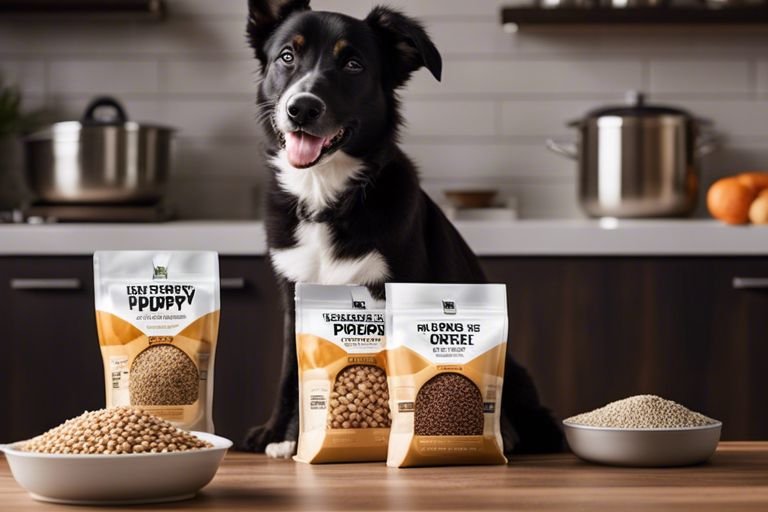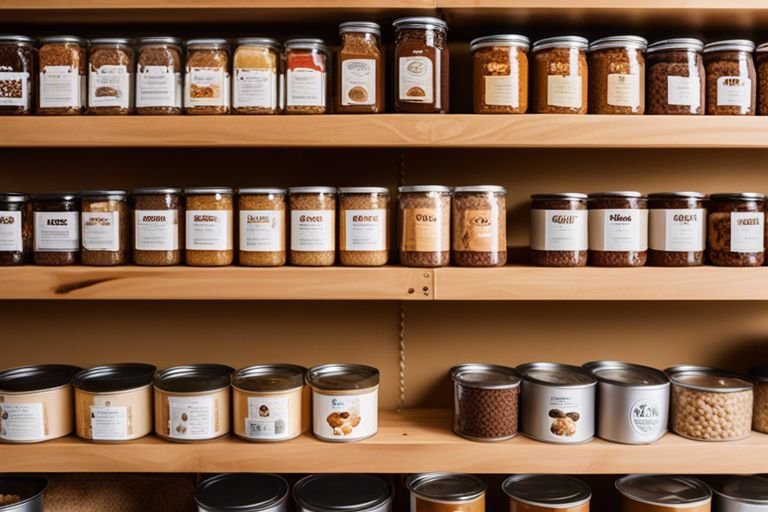Traditional Vs. Grain-Free Puppy Food – Which Is Better?
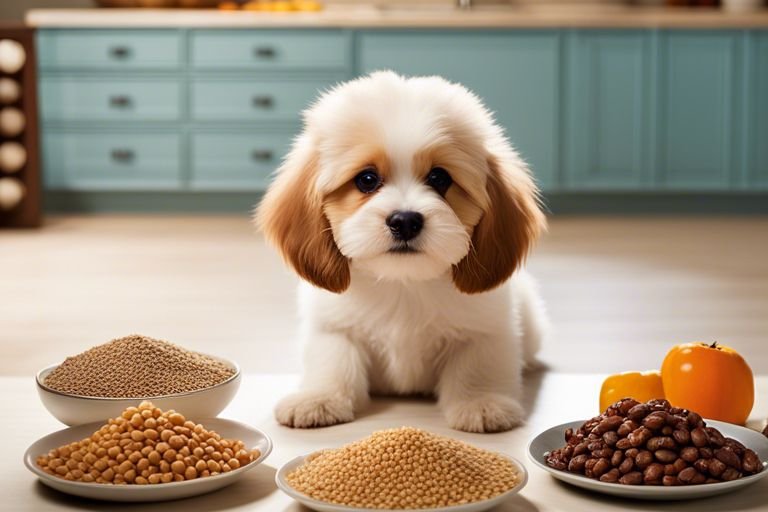
Over the years, the debate between traditional and grain-free puppy food has been a hot topic among pet owners and veterinarians alike. While both options have their advantages and drawbacks, it’s important to understand the differences between the two in order to make an informed decision about what is best for your furry friend. In this blog post, we will explore into the key factors to consider when choosing between traditional and grain-free puppy food, helping you determine which option may be better suited for your pup’s individual needs.
Key Takeaways:
- Consider Puppy’s Needs: When deciding between traditional and grain-free puppy food, consider your puppy’s unique dietary needs and any potential sensitivities they may have.
- Nutritional Content: Both traditional and grain-free puppy foods can provide adequate nutrition. It’s important to choose a high-quality option with balanced nutrients.
- Grain-Free for Allergies: Grain-free puppy food may be beneficial for puppies with food allergies or sensitivities to grains. Consult with a vet to determine the best option.
- Watch for Fillers: Some traditional puppy foods may contain fillers like corn, wheat, or soy. Opt for options with real meat as the first ingredient to ensure quality nutrition.
- Consult a Vet: It’s always advisable to consult with a veterinarian to determine the most suitable type of puppy food based on your puppy’s individual needs and health requirements.
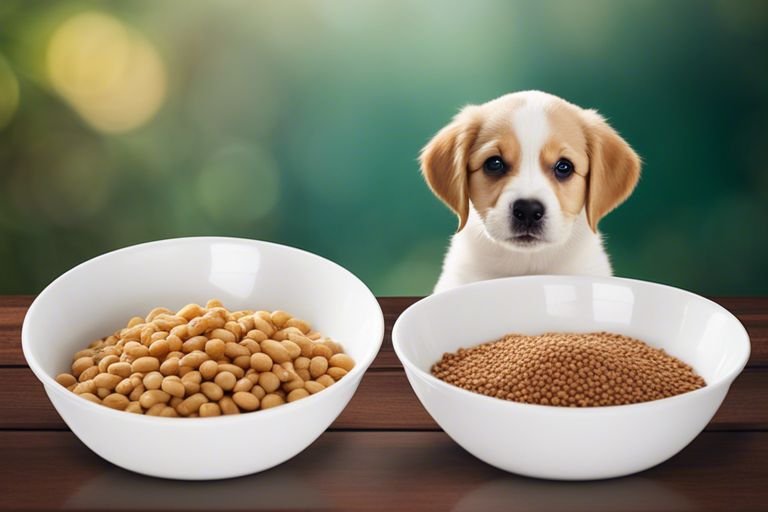
Understanding Puppy Nutrition
The Basics of a Puppy's Dietary Needs
For a puppy to grow into a healthy adult dog, proper nutrition is vital. Puppies have higher energy requirements compared to adult dogs, as they are constantly growing and developing. It is crucial to provide them with a well-balanced diet that includes the right mix of protein, fats, carbohydrates, vitamins, and minerals. Choosing the right puppy food is key to supporting their overall health and well-being.
The Role of Grains in Canine Health
Understanding the role of grains in canine health is vital when considering what to feed your puppy. While grains can be a source of carbohydrates and fiber, some dogs may have sensitivities or allergies to certain grains. Grains like wheat, corn, and soy are common allergens in dogs and can cause digestive issues or skin problems. It is important to monitor your puppy for any signs of sensitivity to grains and consider grain-free options if necessary.

An Overview Of Grain-Free Puppy Food
Some pet owners may opt for grain-free puppy food due to various reasons such as allergies, sensitivities, or personal preferences. It is important to understand the composition and potential benefits of grain-free diets to make an informed decision for your furry friend.
Composition of Grain-Free Diets
Puppy grain-free food typically consists of high-quality animal proteins (such as chicken, turkey, or fish) as the primary ingredients. These brands often incorporate vegetables, fruits, and alternative sources of carbohydrates like sweet potatoes or peas to provide important nutrients for your growing puppy.
Potential Benefits and Claims
For pet owners concerned about potential allergies or sensitivities to grains, grain-free puppy food may offer a suitable alternative. Some claims suggest that grain-free diets could promote better digestion, healthier skin, shinier coats, and increased energy levels in puppies.
To ensure the accuracy of these claims, it is crucial to consult with your veterinarian before switching your puppy to a grain-free diet. A professional opinion will help you understand if a grain-free diet is the best choice for your puppy’s specific needs and ensure they receive a balanced and nutritious diet.
Traditional Puppy Food With Grains
What Constitutes Traditional Puppy Food
The traditional puppy food includes a balanced mix of ingredients that typically consist of protein sources like chicken, beef, or fish, vegetables, fruits, and grains such as rice, barley, or oats. These grains are a common ingredient in many commercial puppy foods that have been formulated to meet the specific nutritional needs of growing puppies.
Nutritional Advantages of Grains in Puppy Diets
Traditional puppy food often contains grains for their nutritional benefits. Grains are an excellent source of carbohydrates, which are imperative for providing energy to active and growing puppies. They also contain imperative nutrients like fiber, vitamins, and minerals that contribute to a well-rounded diet for your furry friend.
Comparing Grain-Free and Traditional Puppy Food
All Health Implications for Puppies
| Grain-Free Puppy Food | Traditional Puppy Food |
| May contain more protein and beneficial nutrients | May contain grains which some puppies may have difficulty digesting |
| Less likely to contribute to obesity | May have higher carbohydrate content |
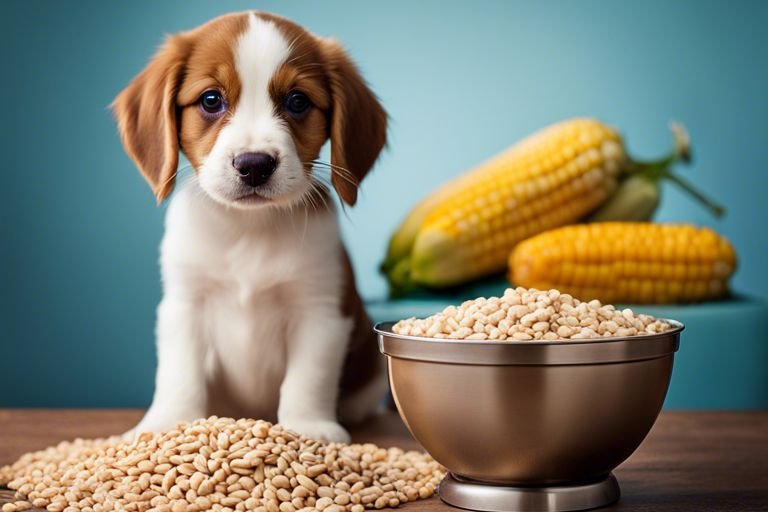
The Considering Allergies and Sensitivities
The presence of grains in traditional puppy food can sometimes lead to allergies or sensitivities in puppies. However, it’s important to note that not all puppies will have issues with grains. If your puppy shows signs of allergies or sensitivities, you may want to consider switching to a grain-free option to see if it alleviates their symptoms.
Implications Price and Availability Differences
Grain-free puppy food typically comes at a higher price point compared to traditional puppy food due to the higher cost of ingredients. Additionally, grain-free options may not be as readily available in all pet stores or supermarkets. It’s important to consider your budget and accessibility when choosing between grain-free and traditional puppy food.
Understanding
Both grain-free and traditional puppy food have their own set of pros and cons. It’s vital to consider your puppy’s individual needs, such as health concerns, allergies, sensitivities, and your budget when making a decision. Consulting with your veterinarian can also provide valuable insight into which type of food would be best for your puppy’s overall well-being.
Making an Informed Choice
To make an informed decision about whether to feed your puppy a grain-free or traditional diet, it’s important to consider various factors. One helpful resource is a blog post by Find What’s Best for Your Pup: Grain Free vs Grain Dog Food, which examines into the differences between the two options and how they may impact your furry friend.
The Importance of Veterinary Guidance
It’s important to consult with your veterinarian when deciding on the best dietary option for your puppy. Veterinarians can provide valuable insights based on your puppy’s specific needs, health considerations, and any breed predispositions. Their expertise can help you navigate the plethora of information available and tailor a diet that promotes your puppy’s overall well-being.
Summing up
The decision between grain-free and traditional puppy food ultimately depends on the individual needs of your furry friend. While grain-free options are beneficial for dogs with certain sensitivities or allergies, traditional puppy food can also provide necessary nutrients for overall growth and development. It is important to consult with a veterinarian to determine the best dietary option for your puppy. Note, the key to a healthy pup lies in a balanced diet and proper nutrition.
FAQ
Q: What is the difference between grain-free and traditional puppy food?
A: Grain-free puppy food does not contain grains like wheat, corn, or soy, while traditional puppy food may contain these ingredients as a source of carbohydrates.
Q: Why might someone choose grain-free puppy food over traditional puppy food?
A: Some pet owners opt for grain-free puppy food due to concerns about potential allergies or sensitivities to grains in their puppies.
Q: Are there any potential risks associated with feeding grain-free puppy food?
A: It is imperative to ensure that grain-free puppy food still meets your puppy’s nutritional needs, as some grain-free options may be lacking in certain imperative nutrients.
Q: Which type of puppy food is better for my puppy, grain-free, or traditional?
A: The best type of puppy food for your puppy depends on their individual dietary needs, preferences, and any potential allergies or sensitivities they may have. It is recommended to consult with a veterinarian to determine the most suitable option for your puppy.
Q: How can I transition my puppy from traditional food to grain-free food, or vice versa?
A: When transitioning your puppy’s food, it is best to do so gradually over 7-10 days to avoid digestive upset. Start by mixing a small amount of the new food with the old food and gradually increase the proportion of the new food while decreasing the old food.



